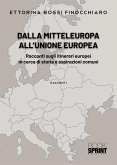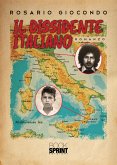В 1991 году в последний раз с Кремлевских стен был спущен флаг Советского Союза и с того времени ничего уже не было, как прежде. Когда я приехал в Санкт-Петербург, Россия вышла из семидесятилетнего коммунизма и уже прожила два года в посткоммунизме, а вернее в безудержном капитализме. В компании, в которой я работал, я запустил деятельность, не только незнакомую, но скорее принятую в штыки советским режимом, а именно управление персоналом. По истечению нескольких месяцев, противодействующая ситуация побудила меня на написание того, что в последствии станет первой публикацией о Человеческих Ресурсах, написанной в России после развала СССР.
In 1991, the flag of the Soviet Union was lowered for the last time at the Kremlin and nothing has been the same since. When I arrived in St. Petersburg, Russia was coming out of seventy years of communism, and two years of post-communism and unbridled capitalism. At the company where I worked, I launched an activity not only unknown to, but opposed by the Soviet regime: personnel management. After a few months, the challenging situation spurred me to write what would be the first human resources publication written in Russia after the collapse of the USSR.
In 1991, the flag of the Soviet Union was lowered for the last time at the Kremlin and nothing has been the same since. When I arrived in St. Petersburg, Russia was coming out of seventy years of communism, and two years of post-communism and unbridled capitalism. At the company where I worked, I launched an activity not only unknown to, but opposed by the Soviet regime: personnel management. After a few months, the challenging situation spurred me to write what would be the first human resources publication written in Russia after the collapse of the USSR.









